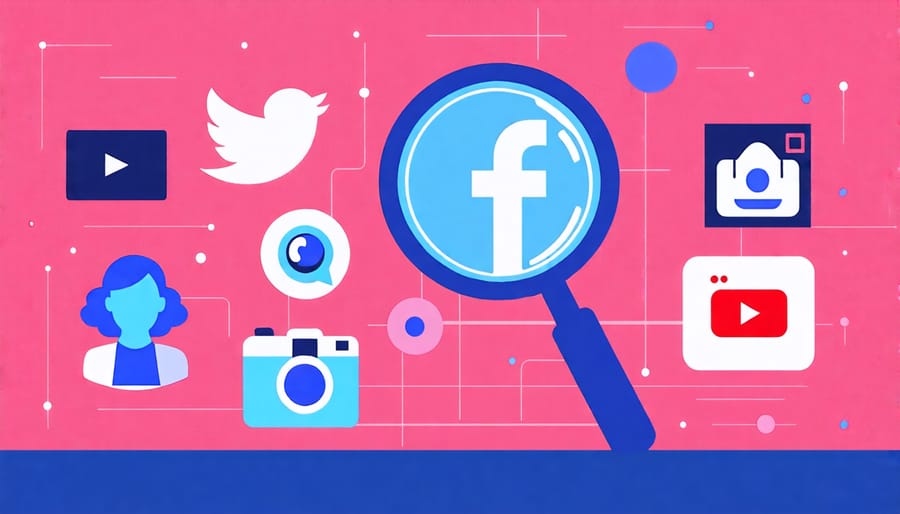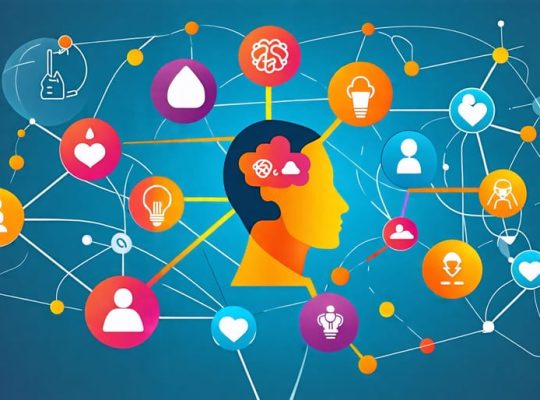Consider this hard-hitting introduction for your article on the impact of social media on teen mental health:
Scrolling endlessly, comparing themselves to unrealistic ideals, seeking validation from “likes” and followers – today’s teenagers face unprecedented mental health risks from their immersion in the digital world of social media. Behind the carefully curated posts and filtered photos lurks a far grimmer reality: skyrocketing rates of anxiety, depression, body image issues, and even suicidal thoughts among teens hooked on online social networks. The pervasive pressure to project perfection, the FOMO-fueled fear of missing out, the craving for instant gratification from virtual “friends” – social media magnifies all the turbulent emotions and insecurities endemic to adolescence. As teenage brains, still developing impulse control and self-regulation, collide with the relentless stimuli of 24/7 connectivity, parents and mental health professionals are sounding the alarm about this looming crisis. If we don’t intervene now to establish healthier digital habits for the iGeneration, we risk condemning our kids to lifelong battles with mood disorders, attention deficits and stunted real-world relationships. In this call-to-action report, experts reveal the red flags every parent must recognize and research-backed strategies to reclaim a generation from the mental health fallout of overexposure to social media.
The Link Between Social Media and Mental Health Problems in Teens

The Comparison Trap
Social media often presents a highlight reel of people’s lives, leading teenagers to compare their own experiences, appearances, and achievements to an unrealistic standard. Scrolling through carefully curated posts and images can fuel feelings of inadequacy, as teens may feel like they don’t measure up to the seemingly perfect lives portrayed online. This constant comparison trap can erode self-esteem and lead to anxiety, depression, and other mental health challenges.
Moreover, the pressure to maintain a flawless online persona can be overwhelming, causing teens to obsess over their own posts and screen time. They may fear judgment or rejection if they don’t present an ideal image, further contributing to stress and self-doubt. It’s crucial for parents and caregivers to help teens understand that social media is not an accurate reflection of reality and to foster a healthy sense of self-worth beyond the digital world.
Cyberbullying’s Toll
Cyberbullying can have a profound and devastating impact on a teenager’s mental health. Victims of online harassment often experience feelings of shame, anxiety, depression, and even suicidal thoughts. The constant barrage of negative messages and public humiliation can erode self-esteem and lead to social isolation. Unlike traditional bullying, cyberbullying follows teens wherever they go, making it difficult to escape the abuse. The anonymity of the internet can embolden bullies, leading to more severe attacks. Cyberbullying can also have long-lasting effects, as the hurtful content remains online indefinitely. Parents and educators must be aware of the signs of cyberbullying, such as sudden changes in mood, avoidance of social situations, and declining academic performance. By providing support, resources, and a listening ear, we can help teens navigate this challenging aspect of the digital world and protect their mental well-being.

7 Warning Signs Your Teen’s Social Media Habits are Harming Their Mental Well-Being
Social media can contribute to dramatic mood swings and irritability in teenagers. The constant exposure to curated highlight reels and the pressure to present a perfect image online can lead to feelings of inadequacy, anxiety, and low self-esteem. Additionally, the fear of missing out (FOMO) and the need for instant gratification through likes and comments can cause teens to experience intense emotional highs and lows based on their social media interactions. If you notice your teen exhibiting frequent and drastic changes in mood or increased irritability, it may be a sign that their social media use is negatively impacting their mental well-being.
As teenagers become increasingly absorbed in their online personas, they may begin to withdraw from real-life social interactions. This shift can be gradual, with teens spending more time scrolling through feeds and engaging with virtual friends than participating in face-to-face conversations or activities. Social anxiety and fear of missing out (FOMO) can exacerbate this tendency, making it difficult for teens to prioritize in-person connections over the constant allure of social media notifications. When teens consistently choose online interactions over real-life experiences, it can lead to feelings of isolation, loneliness, and disconnection from their immediate support systems. Encouraging a healthy balance between online and offline socializing is crucial for promoting overall mental well-being in teenagers navigating the digital age.
Constantly refreshing social media feeds to check likes, comments, and follower counts can become a compulsive behavior for some teens. This obsessive need for validation and fear of missing out (FOMO) may stem from low self-esteem or a desire to fit in with peers. Teens who tie their self-worth to online metrics may experience anxiety, depression, or feelings of inadequacy when their posts don’t receive the desired engagement. It’s important for parents to have open, non-judgmental conversations with their teens about the emotional impact of seeking external validation through social media and to help them develop a strong sense of self-worth based on their inherent value as individuals.
Scrolling through carefully curated social media profiles can lead teens to compare their lives, appearances, and experiences unfavorably to others. They may feel envious of their peers’ seemingly perfect relationships, vacations, or achievements. Constantly witnessing idealized images can fuel feelings of inadequacy, as if they don’t measure up. This sense of falling short can spiral into self-loathing, eroding self-esteem and sparking mental health challenges like depression and anxiety. Parents should watch for signs their teen is struggling, such as negative self-talk, withdrawing from friends and activities they once enjoyed, or expressing hopelessness about their future. Having open, non-judgmental conversations about the deceptive nature of social media and offering sincere praise and encouragement can help counteract these harmful effects.
Excessive social media use can also negatively impact academic performance. Teenagers who spend hours scrolling through feeds or engaging in online conversations may struggle to concentrate on homework or study effectively for exams. The constant distractions and interruptions from notifications can make it difficult to focus and retain information. Additionally, late-night social media use can lead to sleep deprivation, which further impairs cognitive function and academic success. If you notice your teen’s grades slipping or they seem consistently tired and unable to complete schoolwork, it may be time to assess their social media habits and establish healthier boundaries.
As teenagers become increasingly absorbed in social media, they may start to lose interest in hobbies and activities they once enjoyed. If you notice your teen withdrawing from sports, clubs, or creative pursuits, it could be a sign that their social media use is negatively impacting their mental health. Encouraging offline activities and helping them find a healthy balance between social media and real-life experiences is crucial for their overall well-being and personal growth.
Excessive social media use can disrupt sleep patterns and eating habits in teens. Look out for signs like staying up late scrolling through feeds, difficulty falling or staying asleep, and changes in appetite or eating behaviors. Establishing healthy routines around bedtime and mealtimes can help mitigate these effects and promote overall well-being.

Helping Your Teen Develop a Healthy Relationship with Social Media
Set Reasonable Limits
Setting reasonable limits on social media use is key to protecting teenagers’ mental health. Collaborate with your teen to establish clear boundaries they feel are fair and achievable. Consider setting daily time limits, designating phone-free zones or times, and agreeing on which apps are appropriate. Regularly check in with your teen about their social media experiences and adjust the boundaries as needed. Model healthy habits by following the same rules yourself and prioritizing face-to-face interactions. Encourage your teen to engage in offline activities they enjoy, like sports, art, or volunteering. Be open and non-judgmental in your conversations, emphasizing that the limits come from a place of love and concern for their well-being. With consistent and compassionate limit-setting, you can help your teen develop a more balanced relationship with social media and protect their mental health.
Encourage Off-Screen Activities
While social media offers valuable ways to connect, it’s crucial for teens to nurture real-world relationships and interests too. Encourage your teen to participate in off-screen activities they enjoy, like sports, art, music, or volunteering. These pursuits provide opportunities to interact with peers who share similar passions, boosting self-esteem and social skills. Family activities, such as game nights or outings, strengthen bonds and communication. In-person connections offer a depth of interaction that online friendships can’t always match. Engaging hobbies also give teens a much-needed break from the constant stimulation and pressure of social media. Encouraging a balance between online and offline life helps teens develop into well-rounded individuals with the emotional resilience to navigate challenges both on and off the screen. If your teen is struggling to find this balance, consider seeking guidance from a mental health professional experienced in helping youth establish healthy digital habits.
Monitor for Signs of Distress
As a parent, it’s crucial to stay alert for signs that your teenager may be struggling with their mental health due to social media use. Watch for changes in mood, such as increased irritability, sadness, or anxiety. Take note if your teen becomes more withdrawn, loses interest in activities they once enjoyed, or experiences a significant shift in sleeping or eating habits.
If you notice any of these warning signs, approach your teen with compassion and an open mind. Let them know you’re there to listen without judgment and support them through any challenges they’re facing. Encourage open and honest conversations about their social media experiences and how it’s impacting their emotions.
In some cases, the effects of social media on mental health may warrant professional help. If your teen expresses feelings of hopelessness, self-harm, or suicidal thoughts, don’t hesitate to reach out to a mental health professional who specializes in working with adolescents. They can provide the expert guidance and support your teen needs to navigate this difficult time.
Remember, your love, support, and attentiveness can make all the difference in helping your teenager build a healthy relationship with social media and maintain good mental well-being. Trust your instincts, and don’t be afraid to take action if you sense your teen is in distress.
Conclusion
In conclusion, it’s clear that social media can have a significant impact on teen mental health. From the addictive nature of these platforms to the constant pressure to present a perfect image, teens face unique challenges in the digital age. As parents, teachers, and healthcare providers, it’s crucial that we remain vigilant and proactive in supporting the mental well-being of our youth.
By understanding the warning signs, such as changes in mood, sleep patterns, or social interactions, we can intervene early and help teens develop healthier relationships with social media. Encouraging open communication, setting reasonable boundaries, and modeling positive online behaviors are all steps we can take to foster a more balanced approach to these platforms.
Remember, if you’re concerned about a teen’s mental health, don’t hesitate to reach out for help. Whether it’s talking to a trusted friend, seeking professional guidance, or exploring online resources, there are many avenues for support. Together, we can empower teens to navigate the challenges of social media and prioritize their mental well-being in this increasingly connected world.







